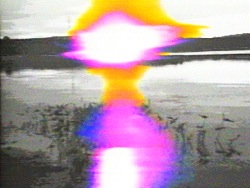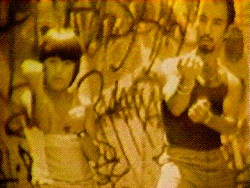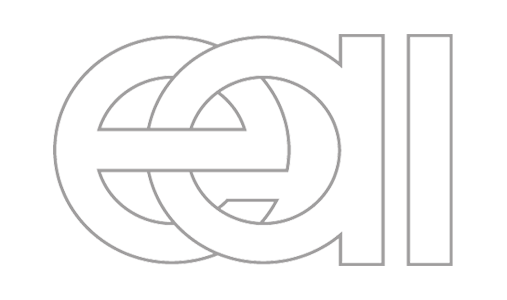Blue Swee: Some thoughts on the U.S. invasion of Grenada
Shalom Gorewitz
1984, 3:32 min, color, sound
Created in response to the U.S. invasion of Grenada in 1984, Blue Swee is a protest against government policy at home and abroad. This powerful collage of appropriated material draws from sources that include 1960s' civil-rights footage, demonstrations recorded in the South Bronx, and archival images of soldiers.
Run &mdash a word-play on the command that begins a computer program &mdash initiates an escalating and disjointed series of images, synthesized muzak and rolling text that collide in continuous arhythmic change.
Shot in Morocco, Beggar's Prayer abstracts naturalistic imagery of the Moroccan landscape through image processing. Gorewitz's abstraction and reconstruction of the image both mirrors and alters Islamic and early Hebraic art's "geometric repatterning of non-representational motifs."
Gorewitz employs an ancient metaphor drawn from Jewish ritual in Black Fire. The light of a flame used by Jewish mystics as a source of contemplation is transposed by Gorewitz into a collage of ominous, erupting images. Juxtaposing scenes of urban decay with pastoral landscapes, he ultimately transforms the screen into a burnished, glowing icon that echoes the ritual's origin.
Description
In Dissonant Landscapes, Gorewitz's social, political, and personal introspections are articulated with an expressive use of image processing and original music. Created in response to the U.S. invasion of Grenada in 1984, Blue Swee is a protest against government policy at home and abroad. This powerful collage of appropriated material draws from sources that include 1960s' civil-rights footage, demonstrations recorded in the South Bronx, and archival images of soldiers. Run — a word-play on the command that begins a computer program — initiates an escalating and disjointed series of images, synthesized muzak and rolling text that collide in continuous arhythmic change. Shot in Morocco, Beggar's Prayer abstracts naturalistic imagery of the Moroccan landscape through image processing. Gorewitz's abstraction and reconstruction of the image both mirrors and alters Islamic and early Hebraic art's "geometric repatterning of non-representational motifs." Gorewitz employs an ancient metaphor drawn from Jewish ritual in Black Fire. The light of a flame used by Jewish mystics as a source of contemplation is transposed by Gorewitz into a collage of ominous, erupting images. Juxtaposing scenes of urban decay with pastoral landscapes, he ultimately transforms the screen into a burnished, glowing icon that echoes the ritual's origin.
Blue Swee: Music composed with Brooks Williams. Guitar: Beo Morales.
Run: Video/Text: Shalom Gorewitz. Music composed and performed with Brooks Williams. Editor: Rick Feist. Assistance: Chris Clark.
Beggar's Prayer: Video: Shalom Gorewitz. Music composed and performed with Brooks Williams.
Black Fire: Soundtrack composed and performed with Brooks Williams. Music: Brooks Williams. Editor: Rick Feist. Assistance: Chris Clark, Peggy Kay.


